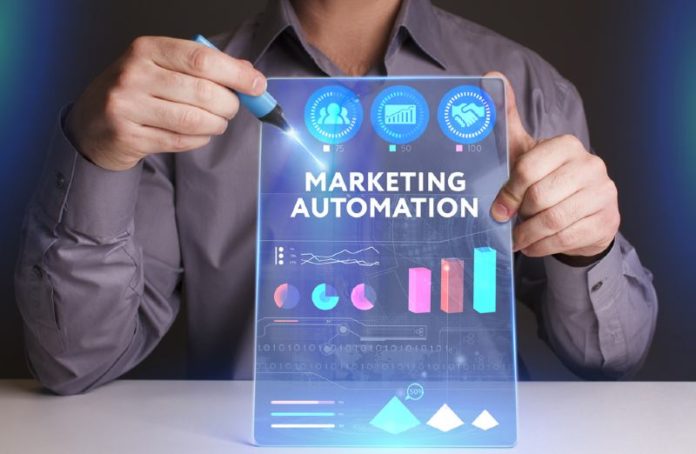The digital era is here, and it is rich with opportunity. The evolution of digital technologies is dictating business performance. An organization that resists it, or one that does not know how to embrace it, is in danger of getting crushed by market forces. Nobody knows that better right now than retailers who were forced into digital transformation in order to keep their heads above water. Be it out of necessity or wish for improvement, marketers should embrace digitalization of business processes with both hands as it can be a fuel for their marketing efforts.
Let’s see how.
What is digitalization?
Digitalization is the act of adopting digital technologies to transform and improve a business model. This process creates many value-producing opportunities: it improves productivity, increases employee satisfaction, improves customer experience, and can even open new revenue streams.
Ways in which digitalization of business processes affects marketing efforts
1) Delivering a superior customer experience
Customer experience (CX) delivery has become a top priority for many businesses. Data shows that customer loyalty is no longer based only on product or price. A customer’s allegiance to a business is also a byproduct of the experience they receive while interacting with your brand.
Offering a superior customer experience is vital to marketing success. 86% of buyers are willing to pay more if you can provide them with a superb customer experience and 49% of buyers will make on-the-spot purchases after receiving a personalized experience.
Below are just a couple of ways in which digitalization can help improve customer experience:
- While having a support agent answering customer questions and emails is still a standard in many industries, most of the heavy lifting in customer service can now be automated with smart chatbots. You can use them to send personalized messages, answer FAQ, improve conversion rates on money pages, and so on. It is cheaper, it is faster, and it leaves you with more data you can use to improve your future marketing messages.
- More and more businesses are using mobile technology to improve customer satisfaction. Great examples come from the retail industry where brand loyalty apps, indoor positioning apps, virtual try-ons, smart payments systems and similar solutions are built to digitalize their physical stores and improve shopping experience.
2) Increasing productivity through process automation
Did you know that marketing automation can increase sales productivity by 14.5%, improve lead generation, and reduce marketing overhead by 12%?
One straightforward example is how marketing automation can enhance your lead qualification and scoring processes. The algorithms can cut through the contact clutter, highlighting prospects that fit your ideal customer profile. Lead scoring helps you focus on your qualified leads by scouring through their behavioral and demographic data.
In the same fashion, it is much easier for marketing and sales teams to communicate and coordinate their actions if leads are managed through a robust CRM system than if they had to share contacts through excel sheets or leave status notes in the form of post-its.
Lastly, improving productivity throughout the organizations is bound to leave a company with more resources, resources that could be invested into marketing rather than on plugging operational inefficiencies.
3) Having more access to relevant data
Cambridge Analytica and GDPR would never get so much free press if data wasn’t important – because there would be nobody there to buy and exploit it.
Digitizing business processes gives you so much more internal data to work with. You no longer know just if an action was taken or not, you know:
- who exactly performed a certain action
- when exactly was the action performed
- in which order were the steps performed
- how long did an employee (for internal processes) or a customer (if we talk about the sales process) took to perform a certain action
What’s more, when your processes are digitalized, it becomes much easier to generate accurate reports which can inform your future actions.
Access to relevant internal business data enable marketing managers to:
- adapt their marketing campaigns (e.g. estimating what the businesses is good at and which products/services are most profitable and place a focus on promoting that aspect of their business)
- craft more timely marketing messages (e.g. timing a promotional campaign for a new product based on when it should be ready to hit the market)
- send correct updates (e.g. why is the service down, what is being done to fix it, and when it should be up again)
Access to relevant customer data allow marketing managers to have:
- better targeting and easier personalization
- easier A/B testing and more marketing channels to test
- more straightforward way to notice and respond to market changes
Data has become key in decision making, while mobility has become an agility marker. These days, customers expect to have a smooth shopping experience, expect to be targeted with relevant and personalized offers, and do not have a lot of patience to wait for brands to answer their questions.
Digitalization of business processes, both inside and outside of the marketing department, is key for meeting those expectations.
Bojan Bajic is the Head of Marketing at Infinum, an award-winning agency that helps companies transform their business with digital products. He graduated from Rochester Institute of Technology and has his head wrapped around digital ever since. With experience in automotive, scientific publishing, FMCG and IT industries, he enjoys discovering new ways to reinvent products and services with technology. He is currently focused helping retailers adopt digital solutions.
Marketing automation stock photo by Photon photo/Shutterstock







